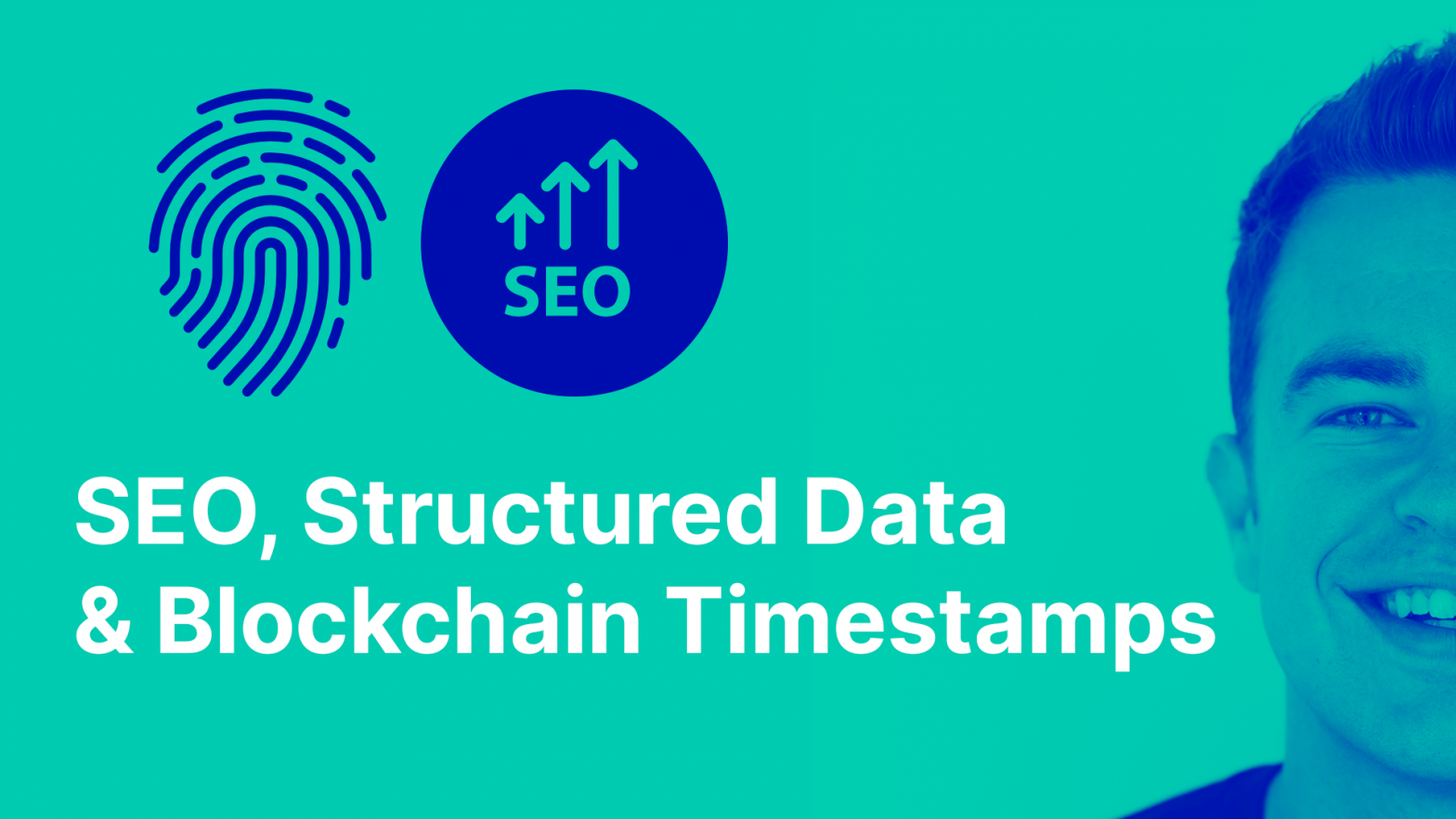Thinking 24/7 about Timestamping content with Blockchain, I came across an amazing webinar from Yoast Academy with Jason Barnard, Omar Reiss, Jono Alderson and Joost de Valk on Structured Data. The huge number of valuable insights in the webinar literally blew my mind and it made me think: “Will timestamping content impact your SEO results?”
To be found in Google, Structured Data is essential. It will make the web a better place for companies, search engines and, ultimately, it will result in better user experience for everyone.
Yoast does a great job in making the implementation of Structured Data as easy as using their WordPress SEO plugin. Also in their eyes, structured data is a great way to push the web forward.
In the webinar, issues regarding Trust and Structured data were introduced. From my point of view, combining Structured Data and timestamping content has the potential to solve the issues addressed, ultimately bringing SEO to a new level.
The problem of Structured Data & Trust
One of the questions that were asked: “Does the Yoast SEO plugin for WordPress add Structured Data for reviews, already?”.
The given answer: “When we add a review schema, it will become too easy to abuse, which is something we think about a lot.”
Here are some thoughts:
Implementing Structured Data is very useful to help search engines interpret the information on your website. However, as long as it’s serving information from your website’s database, it’s easy to tamper with content (revisions, publication dates) and reviews. This hurts the trustworthiness of the web as a whole.
Although Google might be fast and decisive in penalizing fraud with for example reviews, we as a society should not solely rely on Google penalizing brands by filtering them from the search results.
Try now: want to add blockchain timestamps to your WordPress content? Timestamp 10 pieces for free, today!
How Timestamping Content with Blockchain Delivers more Trust
Via hashing, you can create a unique fingerprint out of content, called a timestamp. Adding this timestamp to a blockchain results in indisputable proof that content existed at a specific moment in time.
By anchoring critical information in the blockchain and thereby storing its fingerprint in a decentralized manner, you as a brand make your trustworthiness visible and verifiable for search engines and your readers/buyers.
Therefore, we’ve written a draft proposal for a Timestamp Standard. This is a first step in advocating for the blockchain timestamp to become part of the Schema.org standard, as the ability to prove integrity leads to a more trustworthy web.
Why Blockchain Timestamps should be in your Structured Data
We aim for blockchain timestamps to be part of Structured Data soon, as most importantly, a timestamped piece of content will be a higher quality search result than a non-timestamped piece of content.
Logical next steps for the adoption of blockchain timestamps in Structured Data:
- Add hashes of content timestamps and its revisions to Structured Data (objects: WebPage, Article, and Product);
- Add hashes of a timestamp review to Structured Data (object: Review);
- Connect blockchain identity to all timestamps (object: Person and/or Organization).
Timestamped content is content which verifiably hasn’t been tampered with. Publishers can take accountability for it by connecting their identity to the blockchain account they timestamp with.
Does Timestamping your Content with Blockchain help your SEO?
The right question here is: does timestamping content improve the quality of a search result? And does that make it a potential ranking factor for Google?
It should be:
Firstly, if the full history of a piece of content is transparent, I as a reader have the guarantee that the content hasn’t been tampered with.
Secondly, if someone connects their identity to the content, that form of accountability puts reputation in the game.
Thirdly, it makes us less reliant on Google. After all, every search engine will have access to the verifiable truth timestamps bring! It democratizes the superpower and access to truth that only Google has at the moment.
Structured Data as a ranking factor is what the panel in the Structured Data webinar agreed on.
The arguments above make me confident that adding Content Timestamps via blockchain to the mix will improve SEO tremendously.
So, let’s push the web forward with timestamps and Structured Data, together!
Are you a WordPress user?
Learn how to timestamp your valuable content with blockchain.
See WordProof’s page on Structured Data for SEO.

Great article and I think timestamping content should be part of structured data but what source will be trusted? I think Google will most likely bring out its own blockchain for that … Beside that if content is published and you submit it in your sitemap is that not already a time stamp Google uses?
It is, but in fact that means: owning your own database. You can always temper with it. Adding blockchain to the table, makes that practically impossible.
Right to be forgotten.
Legally in Europe and many other jurisdictions, you have the right to be forgotten, so when you timestamp data, you also need to have the ability to erase your timestamp. For social, factual, privacy, branding and many other reasons, it is also important to be able to erase. Blockchain provides the publisher with the keys. Europechain provides a smart contract to implement the right to be forgotten.